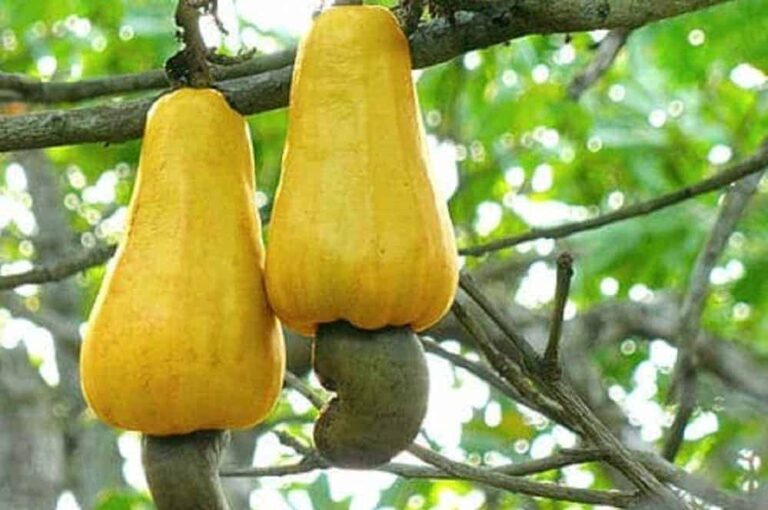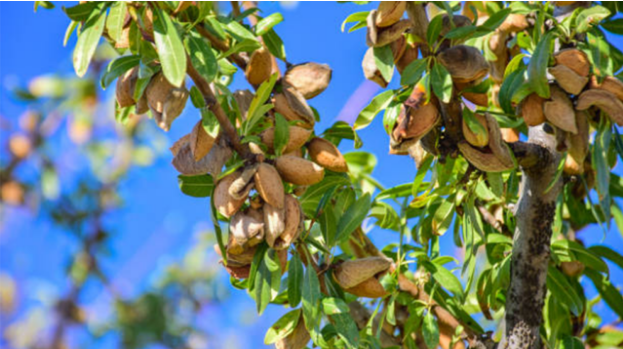Your cart is currently empty!
The United States Wants To Encourage The Production Of Tree Nuts By Domestic Producers
The United States government is implementing measures to provide a much-needed boost to the domestic tree nut industry. The government is stepping in and supporting domestic producers through various initiatives, ensuring a prosperous future for those involved in the cultivation of almonds, pistachios, walnuts, and other tree nuts. In this article, we will discuss the numerous government efforts to support and promote the growth of the United States’ tree nut production sector.
Domestic Tree Nut Producers Receive Boost From The Government
The US government recognizes the importance of developing a robust and flourishing tree nut industry within the nation. Tree nuts are a crucial component of the American agricultural sector, and they contribute significantly to the country’s economy. They are a rich source of nutrients, vitamins, and minerals that are essential for maintaining good health. The United States wants to encourage the production of tree nuts because they are versatile ingredients in many culinary applications. Staples of the American diet but also necessary to share American tastes with the rest of the world.
As a result, the US government is taking steps to support domestic tree nut producers. They are implementing financial assistance programs that benefit these producers, encouraging them to expand their operations and capitalize on the high global demand for tree nuts. The government’s support for these programs comes in various forms, including grants, low-interest loans, and subsidies targeted at domestic producers.
Through these financial incentives, the government aims to enhance the competitiveness of the US tree nut industry, level the playing field against international competitors, and ensure that American-produced tree nuts remain a staple in the global market. The financial assistance programs also promote sustainable farming practices and investments in research and development to improve the overall industry output.
California Tree Nut Industry
The US tree nut industry is a vital part of the country’s agricultural landscape, with almonds, walnuts, and pistachios being the top three tree nuts produced in the nation. California is the leading state in tree nut production, accounting for over 80% of the country’s total production. The industry provides numerous employment opportunities, supporting thousands of jobs across the country.
The financial assistance programs provided by the US government have been instrumental in helping domestic tree nut producers overcome various challenges, including droughts, pests, and diseases. These programs have also helped producers adopt new technologies and farming practices that improve crop yields and reduce the industry’s environmental impact.
The US tree nut industry’s success is not only beneficial for domestic producers, but it also has a positive impact on the global economy. The industry’s growth and expansion have created new opportunities for international trade, benefiting both producers and consumers worldwide. Both walnuts and almonds each export close to 60% of their supply. The United States wants to encourage the production of tree nuts to get more California products to be directly sent to California ports and sent abroad.
In conclusion, the US government’s financial assistance programs are a significant boost for the domestic tree nut industry. They provide critical support to producers, enabling them to expand their operations, improve crop yields, and remain competitive in the global market. The industry’s success has far-reaching benefits, including job creation, economic growth, and improved health and nutrition for consumers worldwide.
US Government Supports Domestic Tree Nut Production
Domestic tree nut production is a crucial component of the US agricultural industry, providing numerous benefits to the economy and the environment. Not only does the industry provide thousands of jobs to farmers, processors, and marketers, but it also contributes significantly to the rural economy. The industry’s growth and sustainability are essential to ensuring that the economy continues to thrive.
List some direct loan and grant programs:

- California Underserved and Small Producers Program -Drought Relief Grant Program has two components and drought relief direct producer grants.
- State Water Efficiency & Enhancement Program – Providing financial assistance in the form of grants to implement irrigation systems that reduce greenhouse gases and save water.
- Healthy Soils Program – Manure, farmworker training, and biological integration.
- Alternative Manure Management Program – This grant is for exactly what it sounds like.
- Fertilizer Research And Education Program – Outreach, education, demonstration, and research projects.
In environmental terms, tree nuts are a sustainable source of nutrition, as they require less water and other resources to grow compared to other crops, ultimately decreasing the environmental impact of agriculture. The trees themselves also provide numerous environmental benefits, such as reducing soil erosion, improving soil quality, and sequestering carbon dioxide from the atmosphere.
Given these facts, the US government is investing in numerous projects that focus on best practices for producing, harvesting, and processing tree nuts. These initiatives involve collaborations between government agencies, industry stakeholders, and research institutions, jointly working towards a more innovative and efficient tree nut industry that benefits farmers, consumers, and the environment.
Tree Nut Farmers Adding Sustainable Farming Practices
One of the government’s primary initiatives is to increase the adoption of sustainable farming practices among tree nut farmers. This includes promoting the use of cover crops, which can help reduce soil erosion and improve soil health. The government is also investing in research to develop new, more efficient irrigation systems that use less water while still maintaining high yields.
Another critical aspect of the government’s support for the tree nut industry is its efforts to improve food safety standards. The government is working closely with industry stakeholders to develop and implement new regulations to ensure that tree nuts are safe for consumption. This includes developing new testing methods to detect potential contaminants and establishing guidelines for proper storage and handling.

Overall, the US government’s support for domestic tree nut production is critical to the success of the industry. By investing in innovative research and sustainable farming practices, the government is helping to ensure that the industry can continue to grow and thrive, providing economic and environmental benefits for years to come.
Tree nut production has become an increasingly important sector of the US economy in recent years. In addition to the government subsidies that have helped spur growth, there are several other factors that have contributed to the success of the industry.
Why Put More Funding Into The American Tree Nut Industry

One of these factors is the growing demand for tree nuts, both domestically and internationally. As consumers become more health conscious, they are turning to nuts as a nutritious snack alternative to traditional junk food. In addition, nuts are a popular ingredient in many recipes, from salads to baked goods, which has further increased demand.
Another factor contributing to the growth of the industry is the development of new technologies and farming practices. Advances in irrigation systems, pest control, and harvesting equipment have all helped to increase efficiency and reduce costs for growers.
Additionally, Western America has a favorable climate for growing many types of tree nuts, including almonds, walnuts, and pecans. These nuts thrive in warm, dry climates, and the United States has some of the best growing conditions in the world.
Despite the many benefits of tree nut production, there are also some challenges that growers face. One of the biggest is competition from foreign producers, who can often offer lower prices due to lower labor and production costs. This has led to calls for increased trade protections and tariffs to level the playing field for domestic growers.
Overall, the growth of the US tree nut industry has been a positive development for both growers and consumers. With continued government support and investment in new technologies, it is likely that the industry will continue to thrive in the coming years.
Government Working to Increase US Tree Nut Production
Tree nuts are a valuable commodity, both nutritionally and economically. They are packed with protein, healthy fats, and essential vitamins and minerals, making them a popular choice for health-conscious consumers. In recent years, the demand for tree nuts has skyrocketed, both domestically and abroad.
Recognizing the potential for growth in this industry, the government has taken steps to increase US tree nut production. Not only is the government providing financial incentives, but it is also working to improve the overall framework. Supporting the domestic tree nut industry specifically.

Implementing policy changes that streamline the regulatory process for farmers, makes it easier for their products to get to markets. The government is also investing in local communities doing research and development. Focusing on exploring new ways to increase yields and improve the quality of US-grown tree nuts.
In addition to these efforts, the government is advocating for increased tree nut consumption in national dietary guidelines. Recognizing the nutritional benefits of tree nuts, the government is taking steps to ensure that American consumers have easy access to home-grown, sustainably produced raw products.
Another noteworthy government effort includes implementing trade policies that protect and promote US tree nut producers in the global market. Through strategic negotiations and agreements, the United States wants to encourage the production of tree nuts to keep them a strong competitor worldwide. Even in the face of growing international competition.
Ultimately, the government’s efforts to increase US tree nut production will not only benefit farmers and producers. Also, consumers who are looking for healthy, sustainable food options. With continued support from the government, the US tree nut industry is poised for growth and success this decade.
US Government Boosts Domestic Tree Nut Production
Thanks to the US government’s comprehensive support, the domestic tree nut industry has witnessed significant growth in recent years. This support has come in various forms, including research funding, trade policies, and financial assistance programs. As a result, the industry has been able to expand its production and reach new markets.
The US government recognizes the importance of the tree nut industry for the economy and the environment. Tree nuts including almonds, walnuts, and pistachios are a sustainable crop that requires less water and fertilizer than many other crops. Making them an eco-friendly choice for farmers. Moreover, tree nuts are a rich source of nutrients and are a healthy addition to any diet.
One of the ways the government has supported the industry is by investing in research to improve tree nut production. Scientists are working to develop new varieties of nuts that are more resistant to pests and diseases. They also are developing varieties that can thrive in different climates. They are also finding ways to improve the efficiency of nut processing and reduce waste.
Changes To Policy On The Tree Nut Exports
In addition, the government has implemented trade policies that make it easier for US tree nut producers to sell their products overseas. This has opened up new markets and increased demand for US-grown nuts. As a result, the United States wants to encourage the production of tree nuts for export to other countries. Demand overseas has surged in recent years, boosting the industry’s growth and creating new jobs.
The government has also provided financial assistance to help farmers and producers invest in their businesses. This assistance has come in the form of loans, grants, and tax incentives, making it easier for starting small businesses. Consequently, this is also for existing businesses to expand.
All of these efforts have contributed to the success of the domestic tree nut industry. By supporting this emerging sector, the US government is promoting a more sustainable and secure food system. Their focus is on creating jobs in America and strengthening the economy.
US Tree Nut Producers to Reap Benefits of Government Support
The tree nut industry in the United States is poised for significant growth in the coming years. The most dominant reason is the government’s commitment to supporting domestic producers. With financial assistance, subsidies, and policy changes, American tree nut producers are well-positioned to continue expanding their operations and increasing their output.
One of the key factors driving this growth is the increasing demand for tree nuts both domestically and abroad. As consumers become more health conscious and aware of the numerous health benefits associated with nuts. The demand for these products is only expected to rise.
Additionally, the government’s focus on sustainable practices is helping to ensure that the industry is able to continue growing while minimizing its impact on the environment. By encouraging the use of sustainable farming practices and investing in research and development, the government is helping to ensure that the industry remains viable for generations to come.

The Increase In Plant-Based Diets
Another important factor contributing to the growth of the US tree nut industry is the increasing popularity of plant-based diets. As more consumers seek out meat-free alternatives, tree nuts are emerging as a popular source of protein and other essential nutrients.
With all of these factors in play, it’s clear that the future is bright for US tree nut producers. By continuing to invest in the industry and support sustainable practices, the government is helping. Ensuring that domestic producers are able to meet the growing demand for these nutritious and delicious products.
In conclusion, US tree nut producers have ample reason to feel confident about the future of their industry. Substantial government support comes in the form of financial assistance, subsidies, and policy changes. Domestic producers will continue to benefit from this commitment to increased production and sustainable practices. With these measures in place, the United States is set to see substantial growth in its tree nut industry. Benefiting not just the domestic producers and consumers. Also, contributes to the overall health and prosperity of the nation’s economy.







